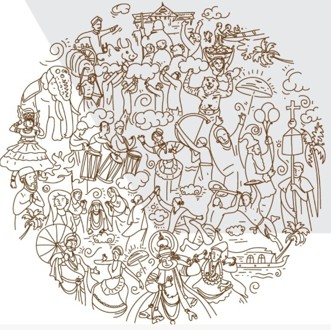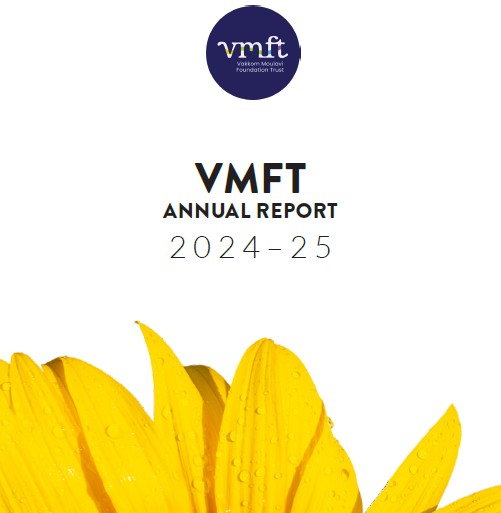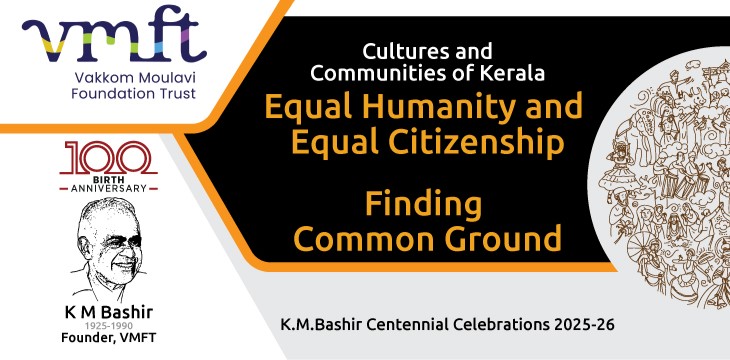On the 100th anniversary of the birth of Shri K.M. Bashir, the Founder of VMFT, and of the Vaikkom Satyagraha
In today’s world, where economic and social divides are deepening—and politics of mistrust and confrontation often eclipse our shared values—the need for inter-religious understanding has never been more urgent. The Vakkom Moulavi Foundation Trust (VMFT) was envisioned by its founder, Shri K.M. Bashir, as a catalyst for social and economic development, with communal harmony as its bedrock. His belief: that only by including all communities can we create a society in which everyone can participate meaningfully.
To commemorate this centennial year, VMFT is organizing a series of events. This milestone also coincides with two other anniversaries of great historical importance to Kerala: the Vaikom Satyagraha (1924–1925), a landmark struggle against caste-based discrimination, and the 120th anniversary of the launch of The Svadesabhimani, the influential newspaper founded by Vakkom Moulavi that transformed Malayalam journalism
The Power of Coming Together – Shaping our Collective Identity
Over the past few decades, Kerala has undergone profound change. Millions of Malayalis live or have worked abroad. Globalization has become deeply embedded in everyday life. Today’s youth dream of opportunities beyond state borders. A young boy in a remote Kerala village may now find his heroes in K-pop, thanks to social media. Meanwhile, five million migrants from other Indian states live and work in Kerala, bringing with them new languages, cultures, and religious practices.
These dynamics raise a fundamental question: What does it mean to be a Malayali in the 21st century?
While Kerala celebrates its progress, it also faces serious challenges—from climate change and environmental degradation to widening educational inequalities.
VMFT addresses these urgent issues through a focused but broad agenda: inclusive governance, education, and science for social transformation. In each of these areas, our strategy is simple yet powerful—bring people together, foster collective identity, and take innovative action. Shri K.M. Bashir believed in combining professionalism with compassion, knowledge with activism. Since 1986, VMFT has embodied these ideals, attracting socially committed individuals inspired by the spirit of voluntarism.
Understanding Across Boundaries: Kerala’s Example
VMFT’s vision is anchored in Kerala’s progressive intellectual traditions. The state has long been a beacon of literacy, public health, and social justice – —progress earned through struggles against caste, for religious reform, and for peaceful interfaith coexistence.
What is less known, however, is that early 20th-century Travancore was among the most rigidly caste-bound princely states. People from marginalized castes were barred from public roads, schools, clothing choices, and temples. Reformers like Sree Narayana Guru, Ayyankali, Yohanan, Sahodaran Ayyappan, and several courageous women challenged this injustice, demanding dignity and equal opportunity for all, irrespective of the conditions of their birth.
The Vaikom Satyagraha, launched in March 1924, captured the imagination not only of Kerala but of the nation. For 604 days, individuals from various castes marched to the Vaikom temple, only to be denied access to the roads leading to it. While immediate victory was elusive, the movement laid the groundwork for the Temple Entry Proclamation a decade later—a turning point in the fight for social equality.
These powerful traditions shaped Shri K.M. Bashir’s belief that the struggle for social justice, communal harmony, and political and economic development are intertwined. When governance includes everyone and economic progress is shared, society flourishes—not just materially but in trust, peace, and cohesion. This vision continues to animate VMFT’s work today.
Learning from the Past – Not Living in the Past
K.M. Bashir founded VMFT not only as a response to contemporary issues but also as a living tribute to Vakkom Moulavi (1873–1932). The story of Vakkom Moulavi—a Muslim social reformer from a small village in the princely state of Travancore—offers a powerful lens through which to imagine a pluralistic, inclusive society rooted in mutual respect and critical reflection.
Though he lacked formal schooling, Moulavi was privately educated in multiple languages and immersed himself in the reformist ideas sweeping Kerala, India, and the Islamic world—especially those emerging from Egypt’s intellectual awakening. In 1905, he launched The Svadesabhimani, a newspaper that championed political accountability, public education, and progressive reform. It was banned in 1910 for its fearless criticism of the state. Through other journals and organizational work, he focused his attention on reforms within the Muslim community. At a time when Muslim women’s literacy was nearly non-existent, Moulavi advocated their right to education and helped establish schools in underserved areas.
What set him apart was not just his intellect, but his ability to engage across communities, faiths, and belief systems. He argued for Islamic reform while embracing democratic ideals. This synthesis of global and local thought, religion and reason, tradition and transformation, is a remarkable achievement for his time and an example for ours. Remembering reformers like Vakkom Moulavi is not an act of nostalgia – it is a call to action.
Despite these immense contributions, Vakkom Moulavi was largely erased from the mainstream narrative. The man who boldly walked the tightrope between faith and modernity, tradition and reform, became a footnote in the very history he helped shape. VMFT has worked tirelessly to revive his legacy and situate it in its rightful local, national, and international contexts.
What we choose to remember—or forget—says a lot about who we are, and where we wish to go.
Local Actions with Global Relevance
Our work at VMFT is rooted in Kerala, but its relevance transcends geography. Our vision—of informed citizens, accountable governance, and interfaith understanding—resonates far beyond. The only sustainable path forward lies in solidarity. In listening before judging. In adjustment rather than rejection. In reform rather than stagnation. And in acknowledging that the past can illuminate our path forward—if we’re willing to learn from it.
#Inclusive Education #Indian history #Interfaith Dialogue in India #Kerala Reformers #Muslim Reformers #Pluralism #Religious Harmony #Social Justice #Svadeshabhimani #Vakkom Moulavi



